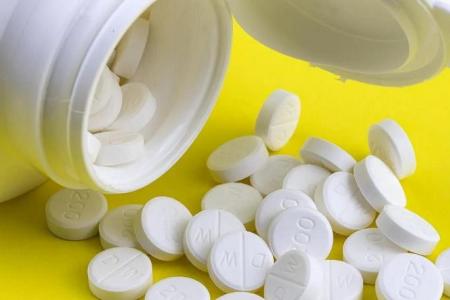What is Tramadol, the drug to be banned in sports competitions?
On Sept 29, 2022, the World Anti-Doping Agency (Wada) published a 2023 List of Prohibited Substances and Methods, which went into effect from Jan 1, 2023.
Wada has since singled out one major modification to the list, saying the drug Tramadol – a strong painkiller – will be prohibited in sporting competitions.
The updated prohibited list was circulated to organisations worldwide, such as Anti-Doping Singapore, so that they could inform athletes under their jurisdiction.
The Tramadol prohibition will be effective from Jan 1, 2024, to allow for athletes and medical practitioners to be aware of the ban.
The Straits Times spoke with the chairman of the Singapore National Anti-Doping Advisory Board, Dr Patrick Goh Oon Leng, on the issue.
Q: What is Tramadol and where can it be found?
A: Tramadol is sold only as a prescription drug in Singapore but it has had incidents of it being peddled on messaging platform Telegram. The drug is banned in several parts of the world such as Saudi Arabia and Japan.
Singapore allows only for Tramadol to be a prescription drug given the risk of patients developing an addiction. This is because the drug is a synthetic opioid.
Misuse can lead to side effects such as nausea and headaches to name a few.
Q: Why is Tramadol banned if it is an effective painkiller?
A: Wada uses three criteria to discern which substances or methods should be banned from sports competitions. If the substance or method meets two of the three criteria, it may be added to the prohibited list.
These three criteria are the ability to enhance a sportsman’s performance, an actual or potential health risk to the athlete, and violating the spirit of sport. Tramadol has fulfilled all three criteria.
A study by Wada was conducted to test if Tramadol has a performance-enhancing effect. The study managed to find that Tramadol can give an athlete a performance advantage, potentially affecting his medalling position during competitions.
Tramadol can be a potential health hazard such as during contact sports like wrestling and martial arts, where opponents are slugging it out with one another but the athlete has numbed himself to the pain.
As a synthetic opioid, Tramadol has a tendency towards it becoming an addiction and a substance of abuse to the athlete, hence going against the spirit of sport.
Q: What was the lead-up to Wada’s decision to ban Tramadol?
A: Tramadol was on the Wada programme for a few years... that monitors drugs that have yet to be officially placed on the prohibited list.
Data gathered from the programme through the use of urine specimens indicated a large usage of Tramadol among athletes.
The rising trend in usage could potentially be due to athletes intentionally trying to dope during their competitions, which indicated an urgency for Wada to ban Tramadol.
Q: When and where is Tramadol banned?
A: The ban will be effective from Jan 1, 2024 but Tramadol is still allowed during out of competition for athletes.
It will be banned only during the in-competition period. The period is defined by the tournament organiser and may start a few days before the tournament starts.
But substances and methods on the out-of-competition prohibited list cannot be used by athletes at any time.
Q: Why is Tramadol banned only in competition and not out of competition?
A: Every drug banned out of competition will be banned during the in-competition period. However, there are some drugs, such as Tramadol, which will be banned only during the in-competition period.
Tramadol provides only an immediate performance-enhancing effect. Other drugs such as anabolic steroids, which mimic the effect of testosterone, give a sportsman a lingering advantage in training as the steroid can help the athlete to build muscle mass, allowing for a performance advantage even if its use is stopped just before the in-competition period.
In-competition drugs, such as Tramadol, do not give such a lingering advantage and give an immediate performance advantage only upon ingestion.
Another reason Tramadol is banned only in the in-competition phase is that it is commonly used for medical purposes and recognised for its effectiveness in reducing pain. It has an effective ability to block the reception of pain in medical practices such as post-operative care, dentistry and cancer treatments.
Q: What are the penalties for athletes who are caught doping with Tramadol?
A: Athletes caught with the use of Tramadol during the in-competition period face an automatic disqualification of results obtained in the competition. They will also have forfeiture of any medals, points and/or prizes.
Athletes may also face a period of ineligibility from sport participation.
Get The New Paper on your phone with the free TNP app. Download from the Apple App Store or Google Play Store now


